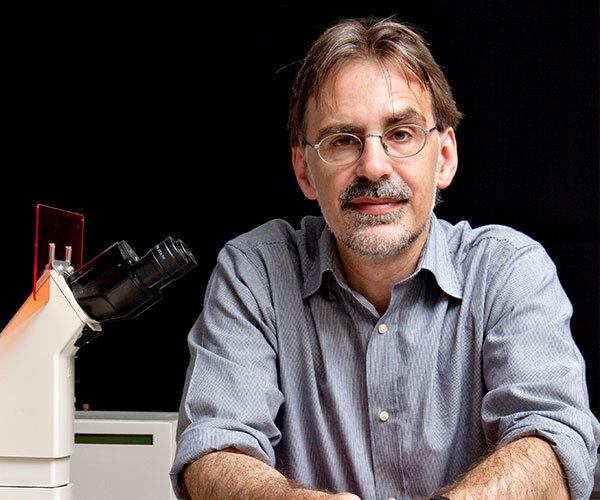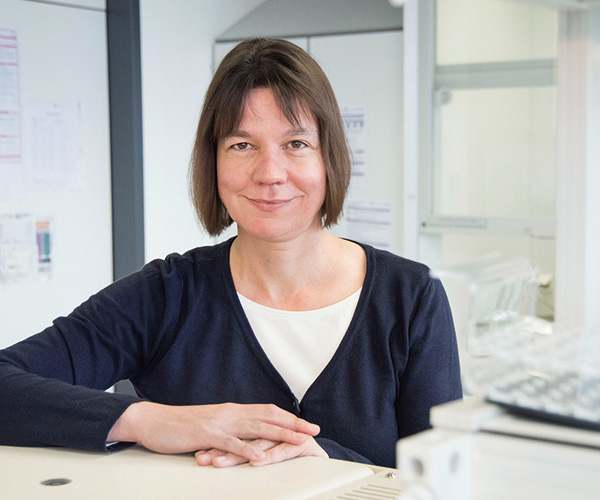Home institution
Leibniz-Institut für Analytische Wissenschaften, ISAS – e.V. (Dortmund, Germany)
Supervisory team
primary: Prof. Dr. Albert Sickmann (ISAS), secondary: Prof. Dr. Johan Heemskerk (CARIM) and PD Dr. Kerstin Jurk (CTH)
Project locations
ISAS (Dortmund, Germany), CARIM (Maastricht, Netherlands), CTH (Mainz, Germany)
Joint PhD Degree
Universities of Maastricht and Mainz
Project details
In healthy vessels, the endothelium produces the vasoactive mediators nitric oxide (NO) and prostacyclin, which relax blood vessels and inhibit platelet activation by acting through protein kinase A (PKA) and protein kinase G (PKG) signaling. Based on pilot phospho-proteome data, it is hypothesized that major targets of PKA and PKG signaling are the platelet complex LRMP (lymphoid-restricted membrane protein) located in the endoplasmic reticulum along with the non-receptor cytoplasmic tyrosine kinase Syk mediated GPIbα- and GPVI-signaling, thereby modulating key platelet activation processes implicated in thrombosis and inflammation.
The project first aims to unravel phospho-proteomic signatures of LRMP and GPIbα-/GPVI-Syk signalosomes reflecting impaired (prothrombotic) endothelial cell functions and revealing potential biomarkers. Therefore starting at ISAS, ESR8 will perform the quantitative assessment of inhibitory pathways in platelets derived from thrombo-inflammation subjects by parallel reaction monitoring (PRM). The second aim is to pursue the mechanistic elucidation of the inhibitory signaling pathways that regulate platelet functions. In order to investigate the impact of endothelial-derived prostacyclin and NO on platelet functions (aggregometry, flow cytometry, platelet-based thrombin generation) and platelet signaling a comprehensive comparative study with healthy versus well characterized thrombo-inflammation disorders has to be conducted. The third aim is to verify biochip models of thrombo-inflammation assessing the anti-platelet activities of the endothelium. ESR8 will work at CARIM in order to study pathways in multi-parameter thrombus formation using vascular chip models. Finally, the fourth aim is to link the LRMP activity to phosphorylation changes in the GPIbα-/GPVI-Syk signalosome, which control platelet adhesion to the extracellular matrix. For that purpose ESR8 will perform platelet function analysis at the CTH in Mainz.
References
- Temporal quantitative phosphoproteomics of ADP stimulation reveals novel central nodes in platelet activation and inhibition. Beck F, Geiger J, Gambaryan S, Solari FA, Dell'Aica M, Loroch S, Mattheij NJ, Mindukshev I, Pötz O, Jurk K, Burkhart JM, Fufezan C, Heemskerk JW, Walter U, Zahedi RP, Sickmann A. Blood. 2017
- Combined Quantification of the Global Proteome, Phosphoproteome, and Proteolytic Cleavage to Characterize Altered Platelet Functions in the Human Scott Syndrome. Solari FA, Mattheij NJ, Burkhart JM, Swieringa F, Collins PW, Cosemans JM, Sickmann A, Heemskerk JW, Zahedi RP. Mol Cell Proteomics. 2016
- Effects of the NO/soluble guanylate cyclase/cGMP system on the functions of human platelets. Makhoul S, Walter E, Pagel O, Walter U, Sickmann A, Gambaryan S, Smolenski A, Zahedi RP, Jurk K. Nitric Oxide. 2018
Desirable student skills
- Experience in cell culture and functional studies
- Mass spectrometry based proteomics
- Analytical and bioinformatical skills



